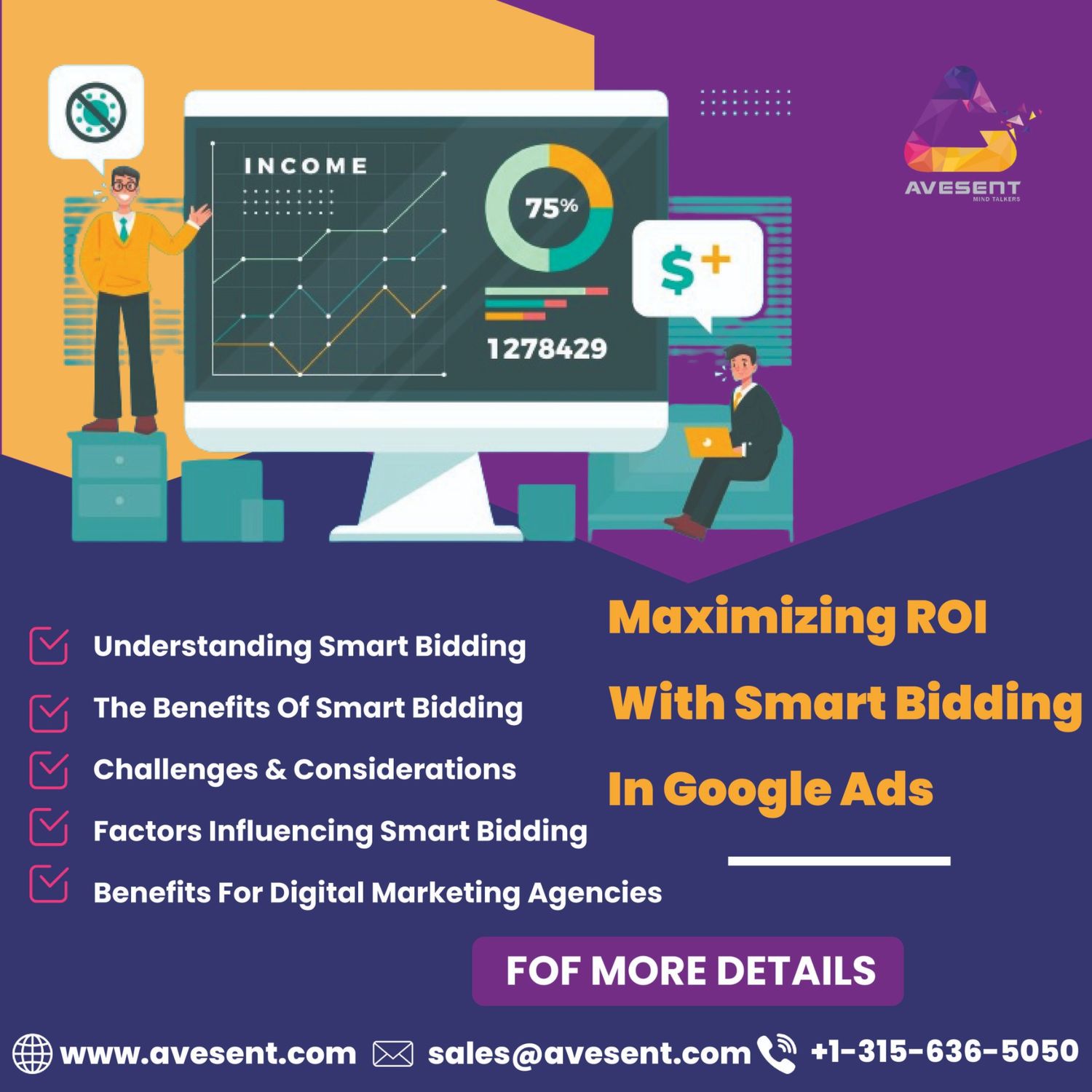In the realm of digital advertising, the landscape is constantly evolving, and Google Ads remains a pivotal platform for businesses aiming to reach their target audience effectively. As digital marketing agencies in India navigate the complexities of online advertising, the implementation of Smart Bidding within Google Ads emerges as a transformative strategy, redefining the approach to bidding strategies and maximizing return on investment (ROI).
Understanding Smart Bidding:
Smart Bidding is an automated bidding strategy powered by machine learning, optimizing bids in real-time to achieve specific goals such as conversions, clicks, or ROAS (Return on Ad Spend).
The Benefits of Smart Bidding:
Enhanced Efficiency: Smart Bidding uses machine learning algorithms to analyze multiple variables in real-time, making bid adjustments faster and more efficiently than manual bidding.
Improved Performance: Adaptive bidding strategies optimize bids to align with specific campaign objectives, resulting in better performance metrics.
Different Smart Bidding Strategies:
Target CPA (Cost-Per-Acquisition): Optimizes bids to achieve a specific cost-per-acquisition goal.
Target ROAS (Return on Ad Spend): Maximizes conversion value based on a set ROAS target.
Maximize Conversions: Sets bids to get the maximum number of conversions within the specified budget.
Enhanced CPC (Cost-Per-Click): Adjusts manual bids based on the likelihood of conversion.
Factors Influencing Smart Bidding:
Historical Data: Utilizes historical campaign data to make informed bidding decisions.
User Behavior and Intent: Analyzes user behavior signals to predict conversion likelihood.
Implementing Smart Bidding Effectively:
Conversion Tracking: Accurate conversion tracking is pivotal for Smart Bidding to optimize towards desired actions.
Continuous Monitoring and Optimization: Regularly review and optimize campaigns to align with evolving business goals.
Benefits for Digital Marketing Agencies:
Time and Resource Efficiency: Automated bidding minimizes the need for manual bid adjustments, allowing agencies to focus on strategy and creative aspects.
Better Client Results: Smart Bidding’s ability to optimize bids in real-time can lead to improved ROI and client satisfaction.
Challenges and Considerations:
Data Quality: Accurate and sufficient data is crucial for Smart Bidding to make informed decisions.
Initial Learning Period: Smart Bidding requires a learning phase to gather data and adjust bids effectively.
Role of Digital Marketing Agencies in Smart Bidding:
Strategic Implementation: Digital agencies leverage their expertise to set up and fine-tune Smart Bidding strategies aligned with client objectives.
Monitoring and Analysis: Continuous monitoring and data analysis help agencies optimize and refine bidding strategies for better performance.
Conclusion:
Smart Bidding within Google Ads represents a significant leap in advertising technology, offering businesses the opportunity to optimize their campaigns efficiently and achieve better ROI. For digital marketing agencies in India, mastering Smart Bidding is instrumental in driving success for their clients, ensuring campaigns are not only cost-effective but also tailored to meet specific business goals in the ever-evolving digital advertising landscape.
As digital marketing continues to evolve, integrating Smart Bidding strategies into advertising efforts allows businesses to stay competitive, maximize ad spend efficiency, and achieve optimal results, ultimately contributing to their growth and success in the online sphere.




